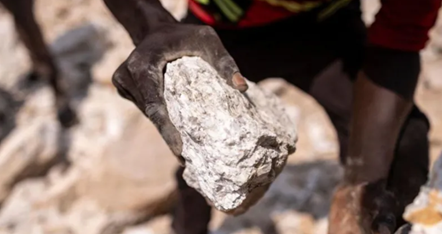i BLOGS
Every country has its own unique strengths, and Africa is no exception. Today, the continent has gained a new kind of power—one that has made it one of the most important regions in the global economy. This power comes from what lies beneath its soil. Africa is rich in critical minerals such as lithium, cobalt, tungsten, tin, and rare earth elements. These minerals power the modern world: smartphones, electric cars, AI data centres, and even advanced weapons all depend on them. As demand grows, the world’s two largest economies—the United States and China—are competing fiercely for access, and Africa is right in the middle.

For many years, China has been the dominant foreign player in Africa’s mining sector. It has invested heavily across the continent and built a powerful global position in mineral processing and refining. This has allowed China to stay on top and gain significant influence over global supply chains. In response, the United States has also begun increasing its investments in Africa’s mining sector to establish its own foothold. Recent data shows that in 2023, the US invested $7.8 billion in Africa, surpassing China’s $4 billion. Much of this investment comes from the US International Development Finance Corporation (DFC), a government agency created in 2019 with a clear goal: to counter China’s growing global influence.
As a result, US investment in Africa is already making an impact. In Rwanda, Trinity Metals received nearly $4 million from the DFC to expand its mining operations. The company emphasizes ethical standards—no child labor, conflict-free minerals, and safer working conditions—and is now exporting minerals to processing facilities in the US.
But opportunities never come alone—they always bring challenges with them. Keeping this in mind, African economist Sepo Haihambo from Namibia has repeatedly emphasized that African nations should not remain under the illusion that the US will automatically act in their best interest. Instead, they must set clear goals and push for agreements that offer long-term benefits, such as joint ventures, local ownership, and processing minerals within Africa rather than exporting them as raw ores.

Some progress is being made. US company ReElement Africa is building a refinery in South Africa so more value can stay within the continent—creating jobs, improving skills, and supporting industrial development.
However, political decisions continue to cast a shadow over these partnerships. In the past, the US imposed heavy tariffs on African goods, and such actions have created lasting trust issues. Now, as Africa’s strategic importance becomes clearer, new players like Brazil, India, and Japan are also stepping into the competition.
Credit: Independent News Pakistan (INP)









